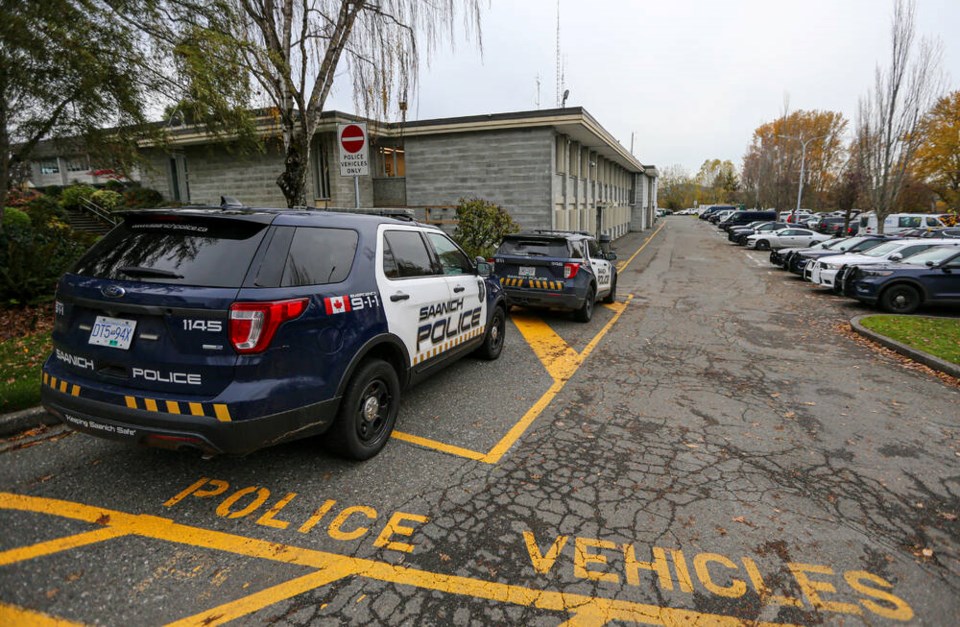The Crown was forced to stay two drug-impaired driving prosecutions after Saanich police discovered a senior officer had falsely recertified the force’s drug-recognition experts between 2014 and 2016.
A third drug-impaired driving investigation by Saanich police was resolved with the individual pleading guilty to a lesser driving offence, criminal justice spokesman Dan McLaughlin said Tuesday.
The actions of the senior Saanich police officer were made public last week in the 2020-2021 annual report of the Office of the Police Complaint Commissioner.
The report said the officer, who has not been named, had been retroactively dismissed and had his rank reduced for 18 months.
In the summer of 2018, Saanich’s drug-recognition experts brought their concerns about recertification to their supervisors and management. Saanich police immediately stopped conducting roadside exams for drug-impaired driving, said spokesman Const. Markus Anastasiades.
Saanich police began an internal investigation, then notified the Office of the Police Complaint Commissioner, which ordered an investigation.
The Police Act investigation confirmed that nine drug-recognition experts, including the senior officer, were “uncertified,” said Anastasiades. However, three of those officers had been moved to different units and were not actively working as drug-recognition experts, he said.
The senior officer was suspended under the Police Act but resigned prior to his discipline hearing.
In his absence, the discipline authority found the officer had knowingly signed 14 official documents that contained misleading information. It also found the officer did not comply with the policy of the International Association of Police Chiefs, which governs the training, certification and recertification of drug-recognition experts.
The discipline authority substantiated one allegation of discreditable conduct, one allegation of neglect of duty and 14 allegations of deceit.
The internal investigation cleared the other drug-recognition experts of any misconduct, said Anastasiades.
Saanich police notified regional Crown Counsel about the three drug-impaired investigations that had resulted in charges between 2014 and 2018. Two files were stayed because the Crown concluded they no longer met the charge-assessment standard of substantial likelihood of conviction and public interest.
Saanich police also halted its drug-recognition program. It was re-established after new officers were trained and oversight of the training officers was increased. The department could not say how long the program was halted for.
“Saanich police are very disappointed and disheartened by the actions and indiscretions that one former member chose to make on their own accord,” Anastasiades.
“It’s one individual who acted this way and we’re very thankful that it was uncovered and a very thorough investigation took place. We were fortunate to take lessons learned from this and have a much more robust program with properly retrained officers going forward.”
A drug-recognition expert is trained to administer a 12-step standardized assessment used throughout the U.S. and Canada for suspected drug-impaired drivers, according to the Canadian Centre on Substance Abuse and Addiction.
On the basis of the evaluation, the officer can demand that the suspect provide a sample of blood, urine or oral fluid for analysis of drug content.

